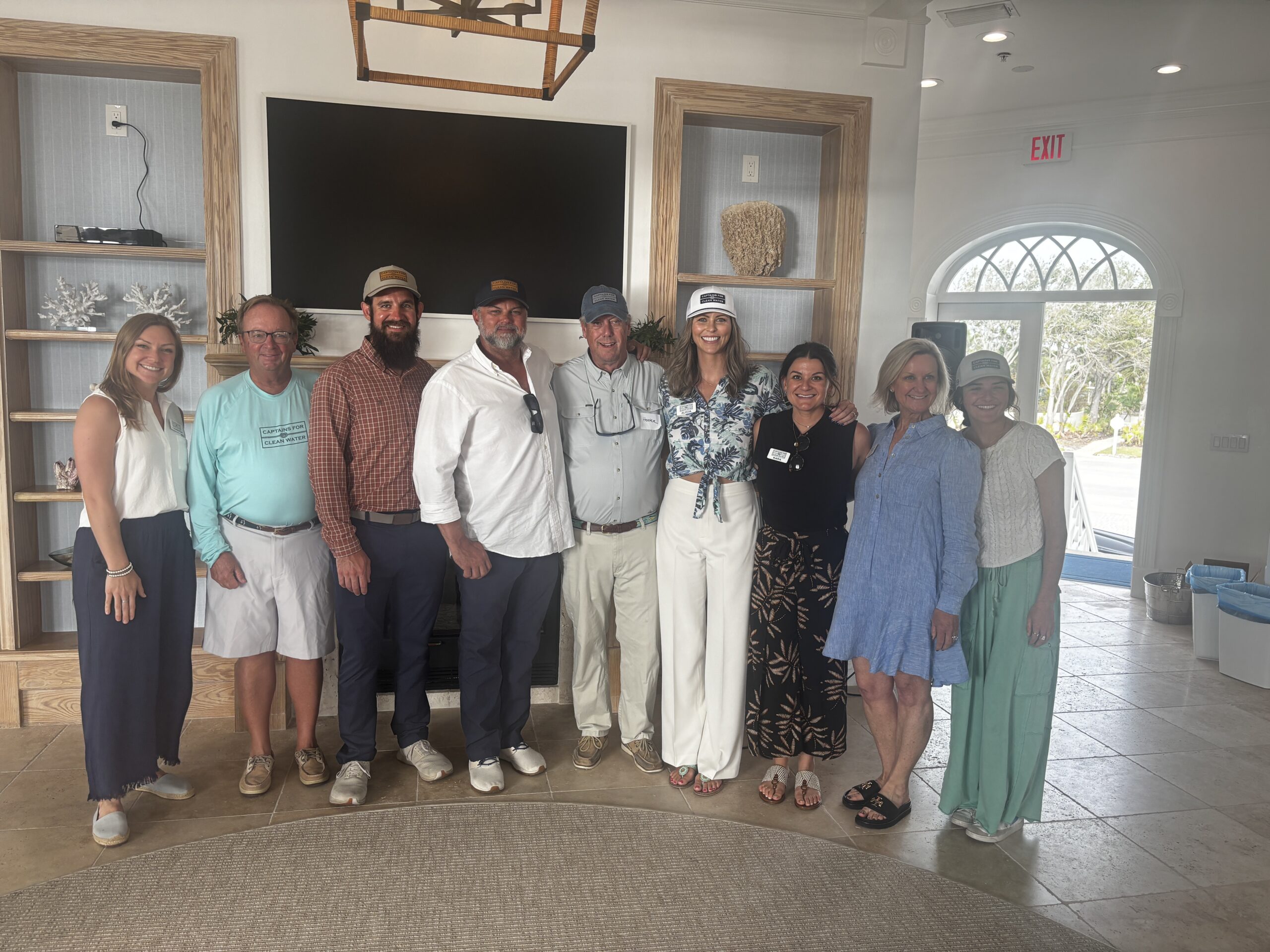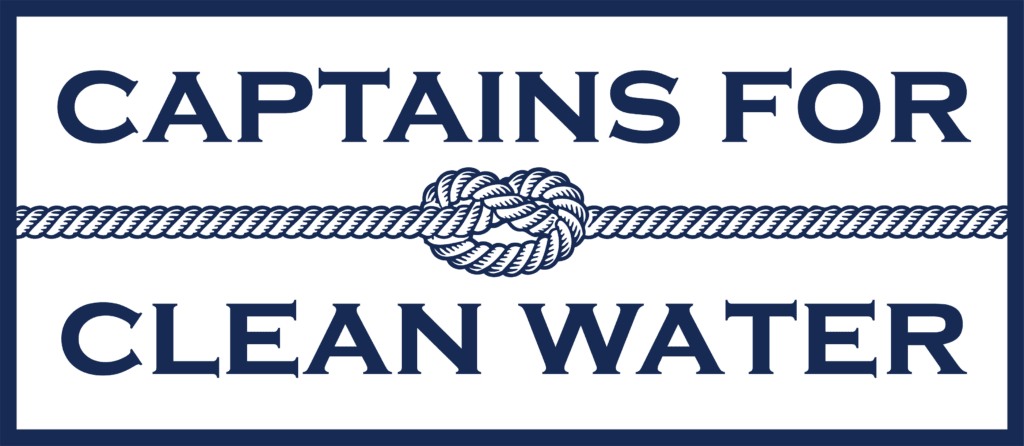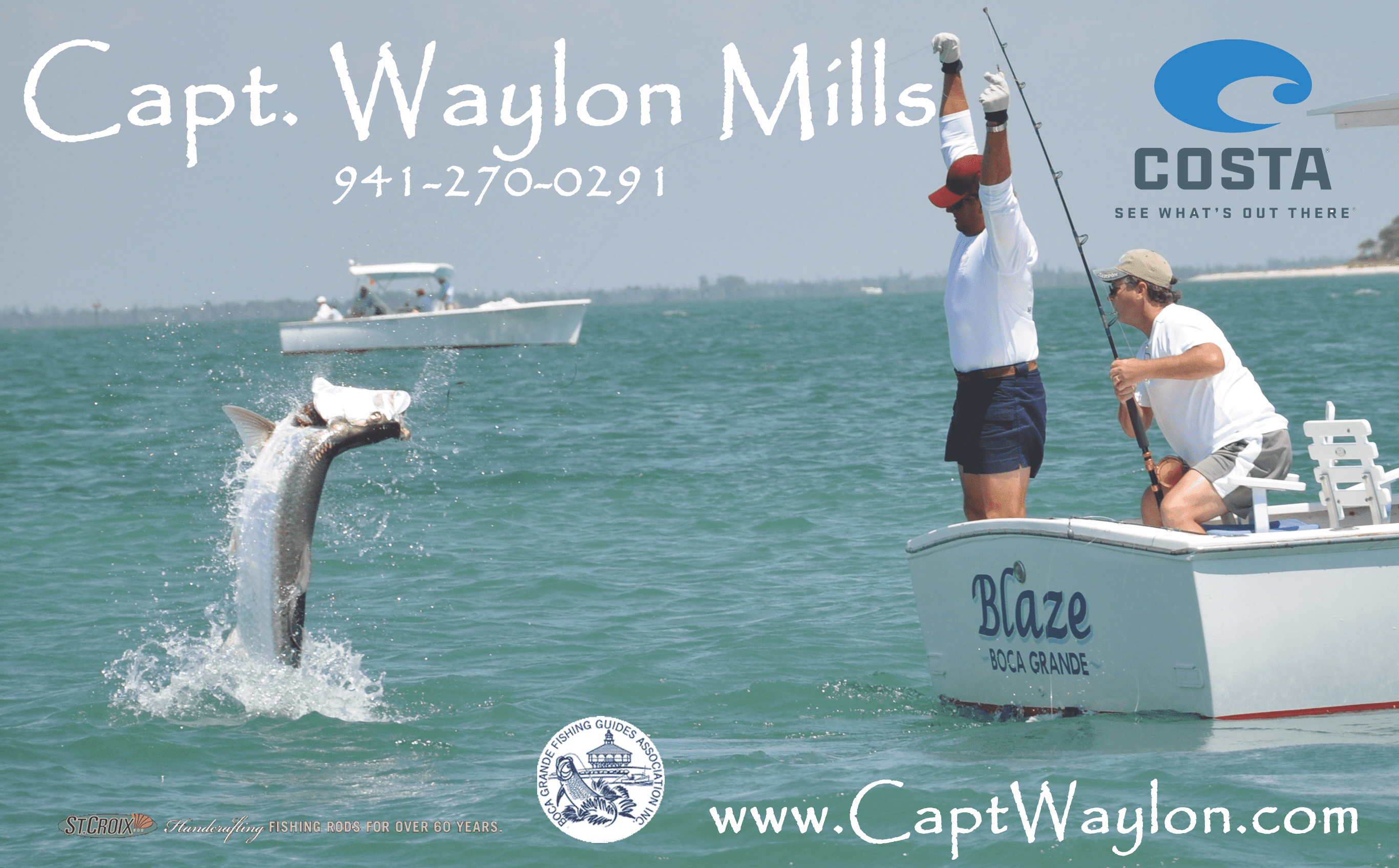Island shows up for Captains for Clean Water event

Captains for Clean Water held a meeting at the Boca Bay Beach Club Monday afternoon, March 31 with 90 Boca Grande attendees.
The event was hosted by Chandler Converse, Jim (Hooter) Hoyt, Peter Hellman, Chris Keller, Scott Hudspeth and Rich Weber. Capt. Daniel Andrews, co-founder of Captains, shared a bit about the organization and took questions from the group.
“The red tide is significant,” Andrews said. “It’s one of the overarching negative symptoms of the [Lake Okeechobee] discharges. The effect of humans dumping nutrients into the water is like throwing jet fuel on a naturally occurring forest fire.”
He recalled 2018, which was one of the worst and longest years for red tide blooms. It would cost just Lee, Charlotte and Collier counties billions of dollars if there was another bloom of this level, Andrews said.
“Everything is a chain reaction. The cornerstone movement [of Captains] had to be getting information quickly to people in real time. Things happen very fast in this fight, and having a good megaphone to be able to distribute information was first and foremost … This is not a science problem. This is a political will problem,” he said.
Andrews also spoke about last week’s U.S. Court of Appeals 11th Circuit decision that unanimously ruled against a sugar industry lawsuit seeking to undermine the Everglades Agricultural Area Reservoir.
“It was a very happy day,” he said. “It gave us a renewed sense and exactly what we needed: the motivation to get us to the finish line. We get hit with surprises left and right, we get hit with opportunities left and right. Our strength as an organization is being nimble.”
Weber, who opened the evening, asked whether Everglades restoration and Captains were anti-
agriculture.
“Three to five percent of that area is used to grow food,” Andrews said. “The rest is sugarcane, a crop that enjoys a heavy subsidy. The federal government will buy what the market will not, which incentivizes them to over produce. We’re not even anti-sugar. Managing water correctly is what we’re about.”
Another attendee asked about Captains’ long-term goals, which Andrews said involves an impact-based prioritization schedule. “The next six to eight years will be a critical horizon to get things built and operational,” he said. “There is more work that needs to be done after that.”
Andrews emphasized the importance of fishing guides and captains. “Their voice matters,” he said. “When fishing guides show up, it makes a difference.”










